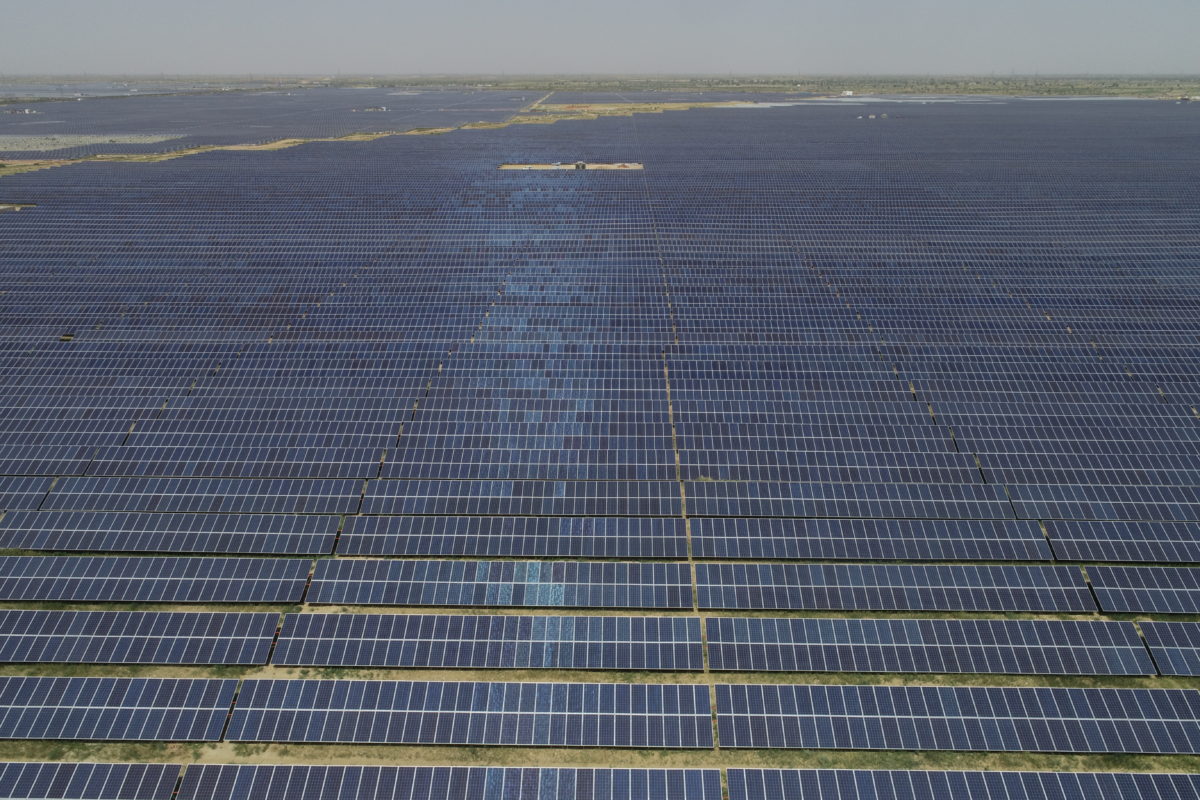India added 15.5 GW of new non-hydro renewable energy capacity from solar, wind, biomass and other renewable energy sources in the 2021-22 fiscal year, from just 7.7 GW installed in the preceding fiscal period, according to the latest solar statistics from the CEEW Centre for Energy Finance (CEEW-CEF) Market Handbook.
Solar energy accounted for 90% of the total renewables capacity added in fiscal 2021-22, driven partly by a 21% increase in rooftop solar installations to 2.3 GW.
As of March 31, 2022, India’s cumulative renewable energy generation capacity (including hydro) stood at 150 GW. This is far off from the national target to install 500 GW of non-fossil fuel capacity by 2030, and the country will require an annual deployment of 40 GW to achieve its 2030 target.
“Over 100% rise in RE capacity addition this fiscal versus capacity addition in FY21 is heartening. However, the recent stress seen in the power sector, with several states facing the prospect of power cuts, underscores the central role that thermal power continues to play in India’s energy mix,” said CEEW-CEF Director Gagan Sidhu. “Further increase in RE can provide a significant degree of protection from the kind of supply chain issues plaguing thermal power, but for that battery storage needs to be deployed at scale to address RE’s one big drawback – intermittency. Other innovative procurement formats such as hybrid and round-the-clock (RTC) also offer a certain degree of protection against intermittency.”
Of the 17.5 GW of renewables capacity auctioned in fiscal 2021-22, 4.3 GW was under hybrid and RTC procurement formats. Sidhu expects this share to increase further as distribution companies increasingly look to developers to address the intermittency challenge of renewables.
An increase in the cost of raw materials and supply chain constraints have resulted in rising solar PV module costs. Higher module costs and the imminent imposition of basic customs duty have led to a rise in the lowest solar tariff of INR 2.14 ($0.028)/kWh in fiscal 2021-22, from INR 1.99/kWh in fiscal 2020-21.
This content is protected by copyright and may not be reused. If you want to cooperate with us and would like to reuse some of our content, please contact: editors@pv-magazine.com.









1 comment
By submitting this form you agree to pv magazine using your data for the purposes of publishing your comment.
Your personal data will only be disclosed or otherwise transmitted to third parties for the purposes of spam filtering or if this is necessary for technical maintenance of the website. Any other transfer to third parties will not take place unless this is justified on the basis of applicable data protection regulations or if pv magazine is legally obliged to do so.
You may revoke this consent at any time with effect for the future, in which case your personal data will be deleted immediately. Otherwise, your data will be deleted if pv magazine has processed your request or the purpose of data storage is fulfilled.
Further information on data privacy can be found in our Data Protection Policy.